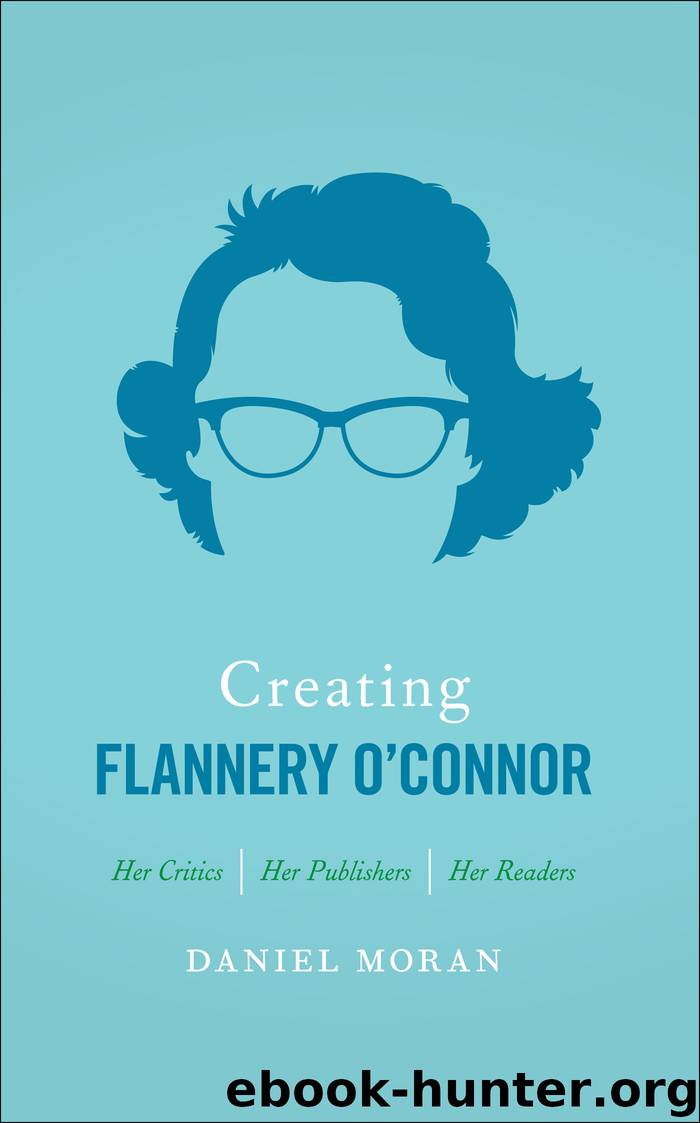Creating Flannery O'Connor by Daniel Moran

Author:Daniel Moran
Language: eng
Format: epub
Publisher: University of Georgia Press
Published: 2016-03-01T16:00:00+00:00
Chapter 5
Adaptation and Reputation
John Huston’s Wise Blood
In 1968 Robert Giroux wrote Robert Fitzgerald about a request he had received from the actor Tony Randall, who sought to mount a film production of “The Artificial Nigger.” Randall was not yet branded as Felix Unger, but his reputation as history teacher Harvey Weskit in Mr. Peepers had taken root, causing Giroux to comment, “I think it would be a miracle for anyone to make a good movie of ‘The Artificial Nigger,’ let alone Tony Randall.”1 The project never materialized, but Giroux’s response reflects a number of issues regarding the ways in which the adaptation of an author’s works can affect his or her reputation. First, Giroux’s calling such an adaptation a “miracle” emphasizes his and others’ belief that certain texts are simply untranslatable into other media, a belief that may strike one of O’Connor’s readers as reasonable: the story climaxes in pages of interior action, where Mr. Head feels the “action of mercy” working on him as he stands as still as the statue upon which he gazes. As Joy Gould Boyum notes in Double Exposure: Fiction into Film, “If one were to accept traditional notions of what is possible for the screen, the work of Flannery O’Connor might seem utterly, unequivocally unfilmable.”2 Second, Giroux’s dismissive “let alone Tony Randall” comes from the assumption that decisions involving any production will be evaluated according to how well the viewer thinks the adaptation has captured the spirit of the original. Of course, there have been many artists whose adaptations have outshone their sources, Hitchcock being the most notable example. But adaptation, like everything else in the film industry, is a bet against very difficult odds.
Randall was one of many who sought permission to adapt O’Connor’s work. Amateurs and professionals alike frequently asked O’Connor’s agent, Elizabeth McKee, for her legal blessings. She was asked to grant film rights to “A Good Man Is Hard to Find,” “The Life You Save May Be Your Own,” and A Memoir of Mary Ann, Hungarian television rights for “The Comforts of Home,” and theatrical rights to “Good Country People.” To all these requests and many others, McKee referred the writers to Regina (who had final say) but often wrote about them to Giroux, who reassured her in counseling Regina to refuse permission.3 Those in O’Connor’s inner circle assumed that her work should remain wholly literary and not become sullied by contact with any amateur screenwriters or more powerful players, such as Robert E. Jiras, a producer who sought to secure the rights to “The River” and sell them to the highest bidder.4
However, Giroux, McKee, and Regina did relent, and did so enthusiastically, when a figure from O’Connor’s past sought to bring his vision of Wise Blood and “O’Connor country” to the big screen. In the early 1970s, Michael Fitzgerald—the oldest son of Robert and Sally—attempted to make a name for himself as a Hollywood producer. Like so many others, however, he eventually found his imagined career an example of the triumph of hope over experience.
Download
This site does not store any files on its server. We only index and link to content provided by other sites. Please contact the content providers to delete copyright contents if any and email us, we'll remove relevant links or contents immediately.
| African | Asian |
| Australian & Oceanian | Canadian |
| Caribbean & Latin American | European |
| Jewish | Middle Eastern |
| Russian | United States |
4 3 2 1: A Novel by Paul Auster(12372)
The handmaid's tale by Margaret Atwood(7757)
Giovanni's Room by James Baldwin(7325)
Asking the Right Questions: A Guide to Critical Thinking by M. Neil Browne & Stuart M. Keeley(5757)
Big Magic: Creative Living Beyond Fear by Elizabeth Gilbert(5754)
Ego Is the Enemy by Ryan Holiday(5413)
The Body: A Guide for Occupants by Bill Bryson(5080)
On Writing A Memoir of the Craft by Stephen King(4931)
Ken Follett - World without end by Ken Follett(4723)
Adulting by Kelly Williams Brown(4565)
Bluets by Maggie Nelson(4547)
Eat That Frog! by Brian Tracy(4525)
Guilty Pleasures by Laurell K Hamilton(4439)
The Poetry of Pablo Neruda by Pablo Neruda(4097)
Alive: The Story of the Andes Survivors by Piers Paul Read(4018)
White Noise - A Novel by Don DeLillo(4002)
Fingerprints of the Gods by Graham Hancock(3995)
The Book of Joy by Dalai Lama(3974)
The Bookshop by Penelope Fitzgerald(3843)
